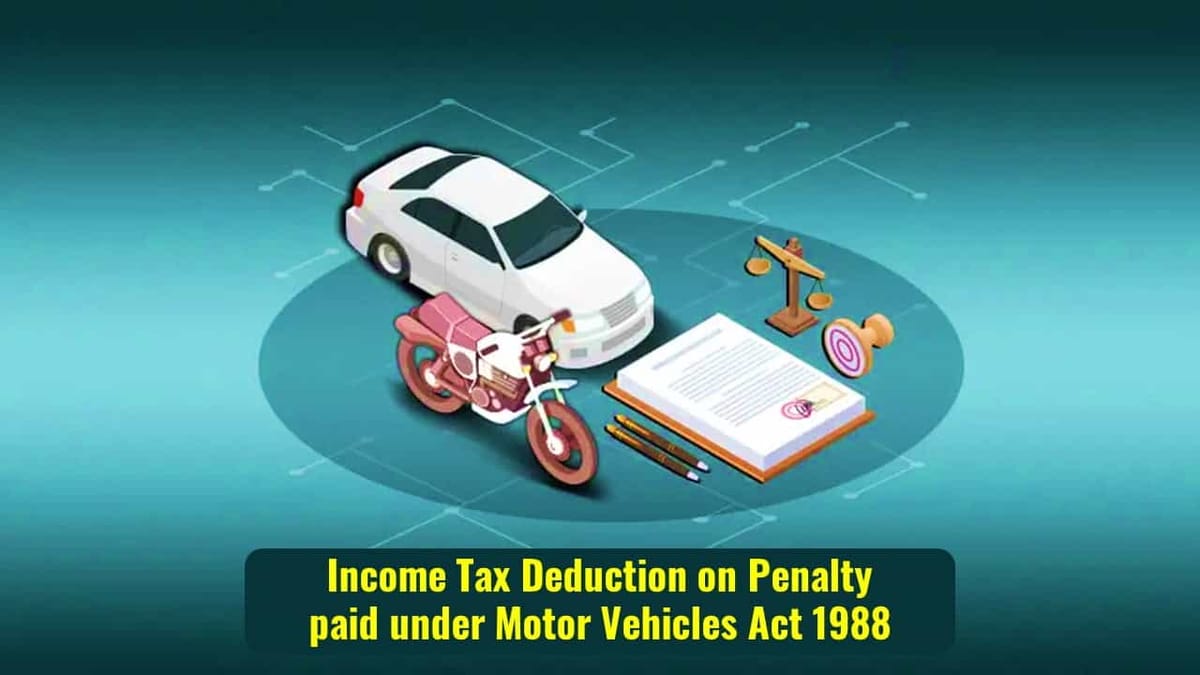ITAT allows Income Tax Deduction on Penalty paid under Motor Vehicles Act 1988 as overloading charges
CA Pratibha Goyal | Jan 5, 2023 |

ITAT allows Income Tax Deduction on Penalty paid under Motor Vehicles Act 1988 as overloading charges
The short point involved in this matter is this that as to whether the addition of Rs.6,09,100/- on account of overloading expenses is sustainable in the eye of law.
The assessee has paid Rs.6,09,100/- as overloading challan. The same has been considered to be an offence committed with the knowledge or under the orders of the owner as per Motor Vehicles Act, 1988 and the said overloading charges / challans are penal charges and levied for infringement of law and rules of the State specifying the permissible capacity. Ld. AO further stated that as per provision of explanation to Section 37 of the Act, any expenditure incurred by an assessee for any purpose which is an offence or prohibited by law shall not be deemed to have been incurred for the purpose of business and no deduction shall be allowed. The First Appellate Authority confirmed the said addition. Hence, the instant appeal before the Tribunal.
4. At the time of hearing of the instant appeal, the Ld. Counsel appearing for the assessee submitted before us that the issue is covered in favour of the assessee in assessee’s own case for A.Y. 2003-04, 2004-05 & 2005-06. In this regard, he has relied upon certain judgments passed by the Co-ordinate Bench in assessee’s own case.
5. The assessee is a registered firm in the business of transportation. It appears that for A.Y. 2004-05 & 2005-06 identical penalty debited to P&L account has been allowed by he Ld. CIT(A). In appeal preferred before the ITAT by the Revenue dated 06.03.2009, the Hon’ble Bench has been pleased to restore this issue to the file of the Ld. AO to verify the facts whether, if the assessee carried excess load and if the penalty is imposed by the RTO not for payment towards infringement of law but as fine collected by him, the same was directed to be allowed. Upon which, on 09.12.2010, after considering the receipts by the RTO, the Ld. Addl.CIT, Gandhidham Range came to a finding that same was paid as fine and has been debited as penalty in the books of accounts. In that view of the matter, the Ld. Addl.CIT was of the opinion that even if such amount was paid as penalty still the same is clearly a compensatory levy and, therefore, same cannot be disallowed under Section 37 of the Act. Finally, the same was, therefore, decided in favour of the assessee. The copy of each of orders passed by the Co-ordinate Bench dated 06.03.2009, order dated 09.12.2010 passed by the Addl.CIT, Gandhidham Range and the consequential order passed under Section 143(3) r.w.s. 254 of the Act by the Ld. ACIT, Gandhidham Circle, Gandhidham-Kutch has been placed on record before us annexing the same in the paper book, considering which, we do not hesitate to conclude that Rs.6,09,100/- in respect of overloading paid by the appellant is an allowable expenses under Section 37 of the Act. Therefore, the same is allowed in favour of the assessee.
For Official Judgment Download PDF Given Below:
In case of any Doubt regarding Membership you can mail us at contact@studycafe.in
Join Studycafe's WhatsApp Group or Telegram Channel for Latest Updates on Government Job, Sarkari Naukri, Private Jobs, Income Tax, GST, Companies Act, Judgements and CA, CS, ICWA, and MUCH MORE!"